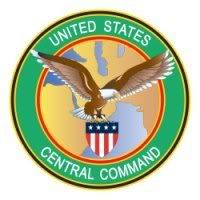Good News From The War On Terror 3/26
Iraqis Take the Lead in Counterinsurgency Training
KIRKUK, Iraq - The effects of Saddam Hussein’s regime are less evident in the current Iraqi army as a group of officers conduct an after-action review (AAR) during training at the Counterinsurgency (COIN) Academy at Iraqi army post K-1 near Kirkuk.
Weakness was not something that Iraqi army officers were able to discuss openly under dictatorial control, but these assessment skills are becoming stronger in the 4th Iraqi Army Division as COIN training progresses, said Capt. Patton Nix, a Military Transition Team (MTT) advisor stationed at K-1.
AAR sessions like this are standard for U.S. troops following any operation, providing an informal action-level assessment of operational strengths and weaknesses, which affect future training and mission planning. Basically, leaders have a chance to discuss what their units did well and what they need to improve upon next time.
“Positives and negatives are their equivalent to our sustains and improves” explained Nix. “So if they say something is negative, that means they did it completely wrong; they didn’t perform to the standard at all. So, we’re trying to steer them towards a sustain/improve mentality. It might have gone O.K, it might have gone bad, but we want them to think about how they can improve it next time. How can we continue to make what we learned better?”
Only a handful of American MTT Soldiers are stationed at K-1. Iraqi soldiers now conduct almost all of the training here, not only at the COIN Academy, but also at the basic training academy across post. The team still interjects occasionally during the AAR session, guiding the discussion to develop constructive criticism. But this is a small role in terms of overall operations at the academy.
“The whole point of the COIN Academy is to teach the companies to effectively conduct counterinsurgency operations on their own,” Nix said. “A big part of this is to not involve coalition forces at all with any portion of the training. The only time we’re involved in the training at all is the rehearsals, the OPORD (Operations Order) briefing and the AAR. It gives them a chance to analyze the mission as they see it, and really take a look at themselves and figure out where they need to improve and where they did well.”
British hand first Coalition base to Iraqi Army
BASRAH — The first Coalition Forces base, the Old State Building in Basrah City, was handed over to the Iraqi Army March 20.

The Iraqi Army took control of the base in a 45-minute-long parade which saw the raising and lowering of the flags of each country.
A Press conference to mark the occasion at Basra International Airport was attended by Governor Wa'ili - the Governor of Basrah, General Habib - the General Officer Commanding 10th Division Iraqi Army, Major General Shaw - the General Officer Commanding Multi-National Force (South-East), and the British Consul General Richard Jones.
Shaw commented on 10 Division's remarkable achievement and how the handover reflected the significant progress that has been made in the south towards complete Iraqi security self-reliance. He stated that over the coming months two further bases, Shaibah Logistics Base and the Shaat Al'Arab Hotel, will also be transferred to full Iraqi control.
Reconstruction Proceeding in Iraq Despite Challenges
WASHINGTON, March 22, 2007 – The reconstruction effort under way in Iraq is one of the most extensive and challenging of all time, but also one of the most important, the deputy commander of the U.S. Army Corps of Engineers told the Senate Committee on Homeland Security and Governmental Affairs today.
Army Maj. Gen. Ronald Johnson, who served as the first commander of the corps’ Gulf Region Division, reported that the Iraqi reconstruction program “is yielding positive, tangible results every day and has significantly improved the lives of the Iraqi people.”
Despite a challenging and often hostile work environment, Johnson reported that some 4,000 Corps of Engineers soldiers and civilian employees have seen more than 2,800 projects completed. “We have completed 13 refurbished hospitals that can serve 5,500 patients a day, restored water treatment facilities benefiting over 2.3 million Iraqis, completed over 250 border forts, helping to secure more than 2,000 miles of Iraqi borders, completed over 800 new or renovated schools serving 325,000 Iraqi children, and have increased electric power generation, benefiting 1.3 million homes,” he said.
Meanwhile, the corps helped increase crude oil production by 300,000 barrels a day over pre-war levels, Johnson told the committee.
At least 80 percent of the projects assessed by the Special Inspector General for Iraq Reconstruction met contract specifications, and SIGIR’s most recent quarterly report noted that about 90 percent of Army Corps projects met contract requirements, he said.


















